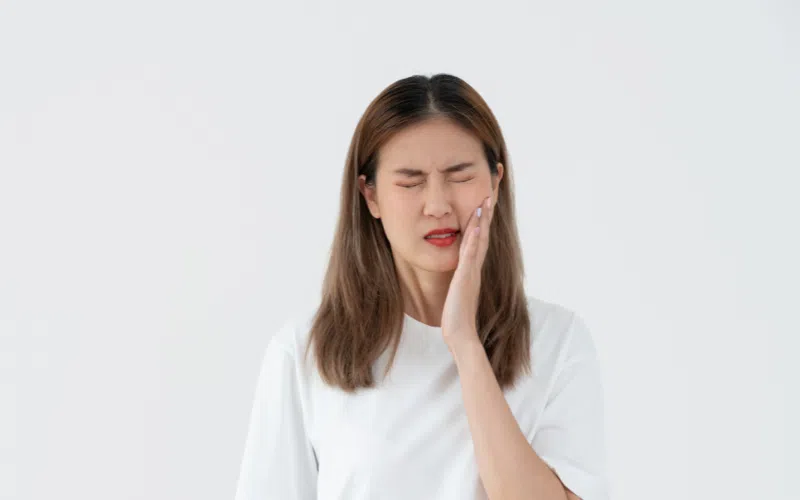Brentwood: (615) 235-1966

What to Do if You Have Major Pain After Dental Veneers
Brentwood, TN

Have you recently undergone a dental veneer procedure and found yourself experiencing significant discomfort? While dental veneers are a popular cosmetic enhancement, complications can arise during the recovery phase. If you’re grappling with intense pain post-treatment, this guide aims to provide clarity on your next steps.
The Importance of Dental Veneers
Dental veneers play a significant role in enhancing both the aesthetic appeal and overall oral health of individuals. Here are key aspects highlighting the importance of dental veneers:
Cosmetic Improvement:
Dental veneers are primarily known for their cosmetic benefits. They offer a transformative solution for individuals dissatisfied with the appearance of their teeth. Whether dealing with stains, chips, cracks, or gaps, veneers provide a natural-looking and durable cover, creating a more aesthetically pleasing smile.
Boosted Self-Confidence:
A smile that one feels confident about can have a profound impact on self-esteem. Dental veneers can address various dental imperfections. As a result, it allows individuals to feel more confident and comfortable in social and professional settings. The improved smile can positively influence how one is perceived by others.
Versatility in Addressing Multiple Issues:
One of the significant advantages of dental veneers is their versatility. They can effectively address a range of dental issues, including discoloration, misalignment, and irregularities in tooth shape or size. This versatility makes veneers a comprehensive solution for individuals seeking a holistic smile makeover.
Conservative Tooth Preservation:
Unlike some dental procedures that may require substantial tooth reduction, veneers often require minimal removal of tooth enamel. This conservative approach allows for the preservation of natural tooth structure while still achieving significant cosmetic improvements.
Understanding the Origins of Dental Veneer Discomfort:
Several factors could contribute to the discomfort associated with dental veneers:
- Infections: Dental veneer pain might result from infections, often instigated by bacteria infiltrating the veneer’s vicinity through cracks or damaged areas. Symptoms may encompass localized swelling, tenderness, redness, and systemic signs like fever or fatigue. Immediate dental intervention is crucial if an infection is suspected.
- Allergic Reactions: Some individuals may experience allergic responses to the materials used in dental veneers, such as porcelain or composite resin. Indicators of an allergic reaction can range from localized swelling and itchiness to more widespread symptoms like hives. If an allergy is suspected, prompt medical evaluation is advised.
- Incorrect Fitting: Discomfort can also arise from improperly installed or misaligned dental veneers. Ideally, veneers should seamlessly conform to the teeth’ contours. Issues like loose fittings or veneers that are either too large or too small can result in pain during routine activities like biting or chewing.
Addressing Dental Veneer-Related Discomfort:
While dental veneers are generally well-tolerated, some individuals may experience temporary discomfort or sensitivity during or after the placement process. Addressing and managing this discomfort is crucial for ensuring a positive overall experience. Here are key considerations:
Pre-Procedure Education:
Prior to the veneer placement, the dentist should educate patients about the procedure, including potential sensations they may experience. This helps manage expectations and reduces anxiety. Patients should be aware that some discomfort is normal but temporary.
Local Anesthesia:
To minimize discomfort during the veneer placement process, dentists often use local anesthesia. This ensures that the treated teeth and surrounding tissues are numb, reducing any pain or sensitivity during the procedure.
Minimally Invasive Techniques:
Modern dental techniques prioritize minimally invasive approaches to preserve as much natural tooth structure as possible. This can contribute to reduced post-procedure discomfort. Dentists carefully prepare teeth for veneers, keeping the process as conservative as feasible.
Temporary Veneer Adaptation:
Before the permanent veneers are placed, temporary veneers may be used. These provisional restorations help patients adapt to the new shape and size of their teeth, and they provide some protection to the prepared teeth. Any discomfort experienced with temporary veneers is typically short-lived.
FAQs:
1. What should I do if I am experiencing Dental Veneer pain?
Answer: Before pursuing treatment for your dental veneer discomfort, it’s crucial to determine its origin. Based on the underlying cause, treatments such as antibiotics, antihistamines, or modifications may be required to alleviate the pain and discomfort.
2. How can I prevent Dental Veneer pain?
Answer: To minimize the risk of dental veneer discomfort, it’s crucial to have them accurately fitted and tailored to your mouth’s specifications prior to placement. Moreover, diligent care of your dental veneers is essential to avert potential cracks or chips that could elevate susceptibility to infections or allergic reactions.
3. What should I do if my Dental Veneer pain doesn’t improve after a few days?
Answer: If your dental veneer discomfort persists beyond a few days, it’s crucial to promptly consult with a healthcare professional to determine if an infection or allergic reaction is present. In some cases, adjustments or removal of the dental veneers may be necessary to alleviate the pain and discomfort.





